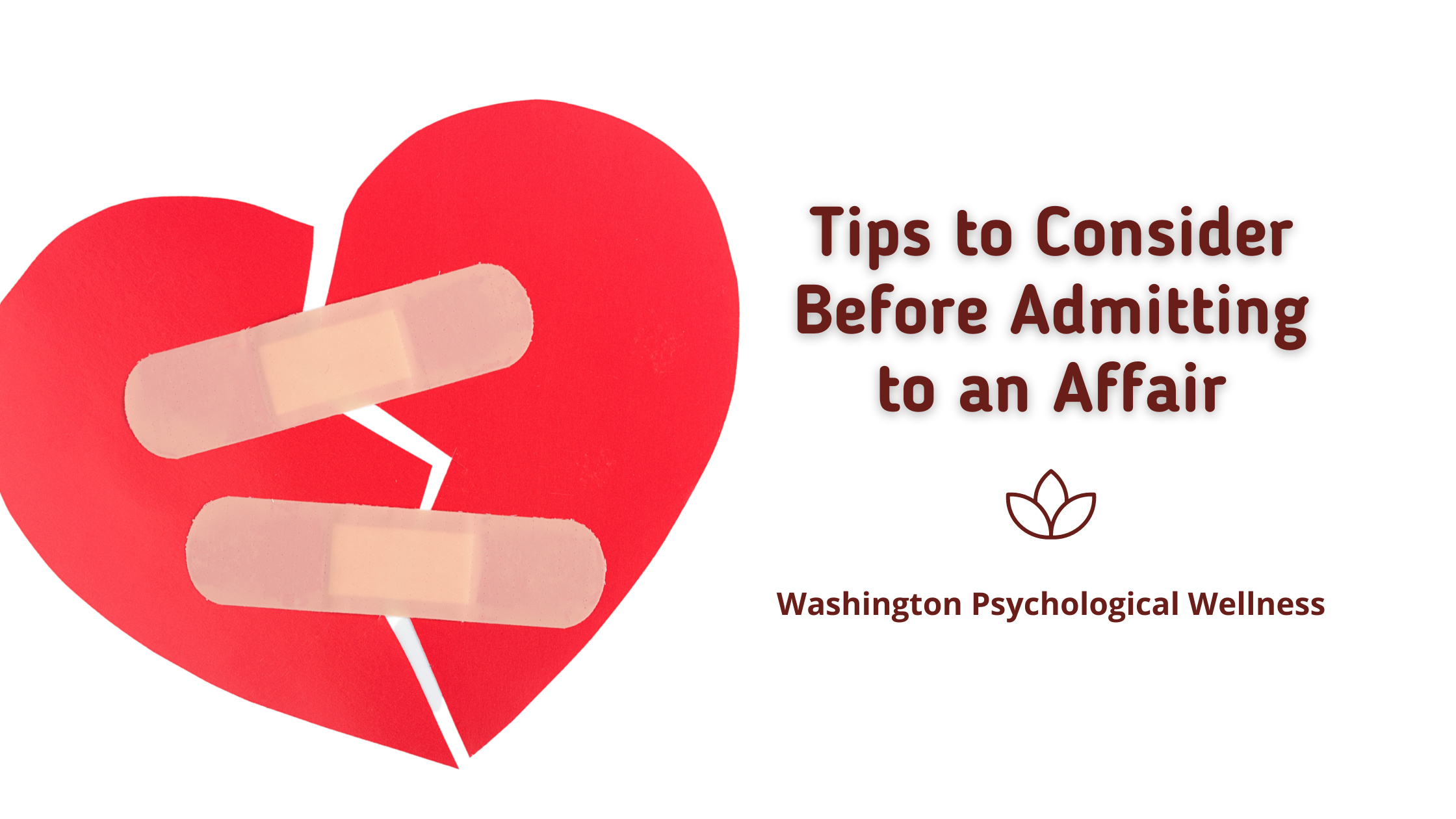
7 Tips to Consider Before Admitting to an Affair
It takes a tremendous amount of energy and courage when admitting to an affair, and it might be one of the most challenging conversations you have.
In response, both partners undergo a shift that transforms the world they thought they once knew and it can be one of the most traumatic events that occur in a relationship. One is heartbroken, furious, and feels betrayed, while the other is immersed with guilt and shame. Navigating this new dynamic in a relationship in the wake of an affair is undoubtedly complex.
On the other hand, admitting to an affair presents an opportunity to rebuild trust and the framework of your relationship. Deciding to keep it a secret may seem satisfying in the short term, but ultimately, the guilt and shame disintegrate the connection with your partner. If your relationship survives infidelity, the chances of that happening are much greater if you disclose it to your partner.
Since an affair is often a result of bigger, underlying issues in the relationship, admitting it to your partner provides an opportunity for those issues to be resolved. Even with the challenging road ahead, it can actually strengthen the foundation of your relationship. By taking the right steps, it’s possible to save your relationship. Here are 7 tips to consider before admitting to an affair.
1. Choose an appropriate setting
You’ll need to plan the conversation. Set aside some time to ensure that neither of you is rushed or stressed. Privacy is essential, so don’t have the conversation in a public setting. Ensure you and your partner are in a safe, comfortable place before you admit to having an affair.
2. Avoid being defensive
Because the discovery of an affair is so traumatic, there’s no place for defensiveness. Any explanation you give will most likely be seen as an excuse and shows your partner that the relationship is still in danger. It reveals to them that you aren’t committed to resolving the issue and rebuilding your partnership. Give them time to recover, as it’ll lay the groundwork for a successful recovery.
The remedy for defensiveness is taking responsibility. Although you may recognize your relationship’s underlying issues, now is not the time to bring them up. Focus on what happened, not what could’ve prevented you from cheating. Refusing to take responsibility for your actions will only create bigger tension.
3. Be Honest
This will be the most difficult step to take, but it will dictate whether or not both of you can move forward. Avoid lying to make yourself or your partner feel better, but be ready to elaborate when asked.
Be as transparent as you can. Give a clear account of the infidelity, and leave nothing open to interpretation. Use simple, direct statements. If you don’t tell the truth, your partner will create it. They’ll develop their own assumptions and ideas that’ll ultimately become more hurtful than the truth. Releasing the truth will count for something when you start to rebuild your relationship.
This level of transparency should continue for as long as it needs to rebuild that trust again.
4. Give Them Space
Understand that this is a complicated thing for anyone to hear. Everyone reacts differently to bad news, and they need to have the space to do so. Don’t overwhelm them with more information, although it may be tempting. Your partner has a right to be upset with you, and their feelings shouldn’t be minimized.
Offer practical options and be patient.
5. Be prepared to put in the work
Don’t expect to live your life as normal if you want to heal your relationship after an affair. Confessing is one thing, but having the ability and willingness to put in the work to repair your damaged relationship is quite another. Acknowledge that the healing process will be challenging.
According to couples counselors, the healing process can take up to two years. You and your partner need to be patient. If you both decide the relationship is worth saving, you may have to set a few things aside for a while.
6. Decide if anyone else will be told
With time, you may want to consider who you reveal the affair to. This may include children, relatives, or friends. If you choose to stay together, this decision should be made as a couple.
Telling anyone else within your circle can end up backfiring. The more people that know, the more opinions you’ll hear. If you and your partner decide to move forward, they’re more likely to forgive. Friends and family, on the other hand, may not always be so willing. This adds extra pressure to the already vulnerable relationship that is trying to move on.
7. Consider professional help
This may not be something that’s decided in one conversation, but offering to work with a couples counselor will show your commitment to your relationship.
There’s not a “right” timeline to heal. Your partner may need some time to process their feelings as they may feel hurt, sad, angry, or even relieved to know the truth. Therapy isn’t something that should feel forced or imposed, but a decision that’s made between the both of you.
Healing after admitting to an affair
Infidelity is one of the toughest setbacks to overcome in a relationship, but it can also be a catalyst for positive change. If you truly want to move forward and continue with life with your partner after infidelity, it’s possible with the help and support of a couples counselor. Couples/marriage counseling helps couples communicate effectively, learn healthy conflict resolution skills, and rebuild intimacy and trust after an affair.
At Washington Psychological Wellness, we offer a warm, compassionate, and judgment-free approach. If you want to learn more about couples counseling, contact us today.
Related content
Couples Communication Workshops: Do They Work?
Toxic Relationships: There Are No Winners.
